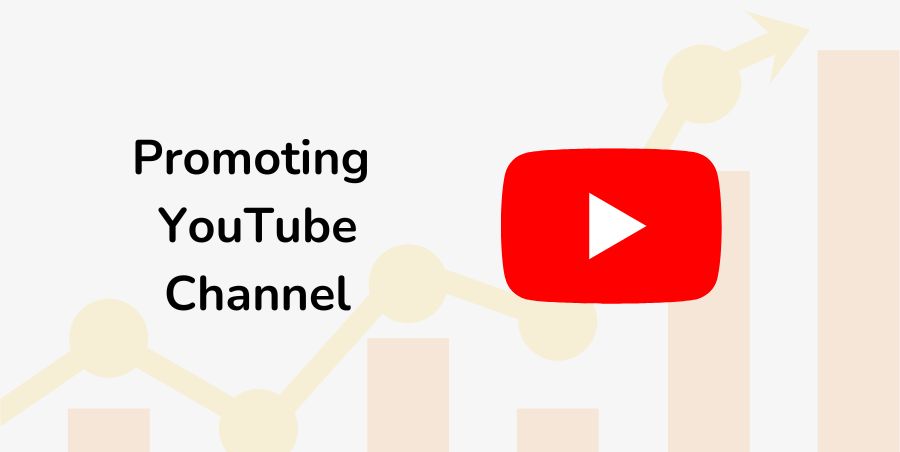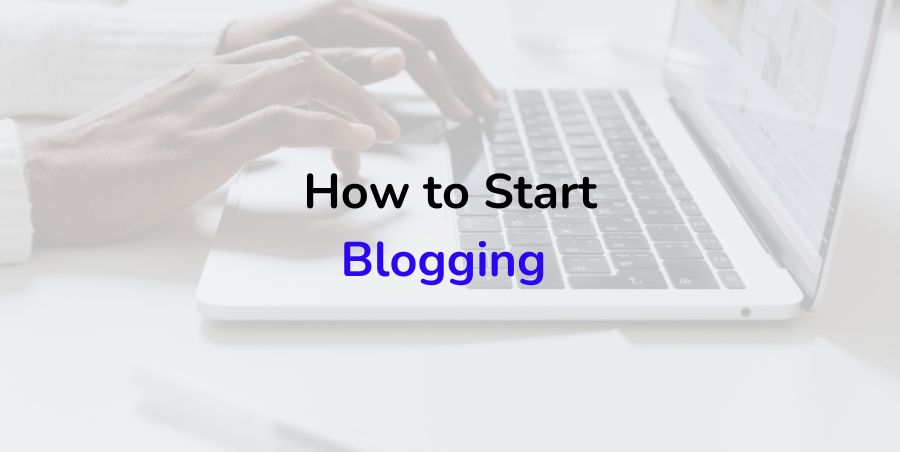Blogging is the art of regularly creating and publishing content on a website or platform. The content can take the form of articles (blogs), videos, or images, usually focusing on a specific topic or niche. And if you’re wondering how or where to get started, this article has the most actionable blogging tips and tricks for beginners, including mistakes to avoid and resources.
Starting a blog is very important for your business, especially if you do it the right way. For instance, it helps establish your brand as a thought leader in your industry. That way, you can improve your search engine rankings and drive more traffic and leads to your business.
A blog helps you engage with customers, improve brand awareness, and increase the chance of converting your website traffic to paying customers. So, if you’re a beginner willing to start, grow or monetize your blog, this article has everything you need to know to succeed.
Disclosure: This content is reader-supported, which means if you click on some of our links, we may earn a commission, but the price on your end remains the same.
Before you Start Blogging, do this…
There’re some things you need to know before starting a blog. First, choose an interesting niche you’d be more than willing to dive into. Doing so will help focus your content and target a specific audience from day one, increasing the chances of your blog’s success.
By identifying a nice, you can also identify the needs and interests of your target audience and create content best suited for them. For instance, if you’re a marketer, you can start a blog about digital marketing success tips, aiming to drive clients to purchase your services.
Before settling on a particular niche, brainstorm some list of topics you’re passionate about and have good knowledge of. Then explore the level of competition and demand for each topic. You can use keyword research tools like Ubersuggest to identify low-competition keywords.
Finally, pick a niche that aligns with your business goals, and learn how to differentiate yourself from competitors. Be sure to set realizable short-term, medium, and long-term goals for your brand, and make a plan on the topics you’ll write content about, and your blogging schedule.
Mistakes to avoid: setting unrealistic goals, creating content for everyone instead of targeting a specific audience, and not researching the market and demand for your content.
Blog Writing Tips for Beginners
By now, you already have a niche and some topics you can start writing compelling content on. Now, writing your blog doesn’t have to take forever, and it isn’t that complicated. I wrote this article in less than 4 hours, and you can too if you follow these blogging tips for beginners.
- Research and Brainstorm: Before writing any piece of content, be sure you have conducted comprehensive research about the topic of interest. Gather information to include in your blog. And take this opportunity to brainstorm ideas and organize your thoughts.
- Prepare an Outline: Organize your ideas and research into an outline, outlining the main ideas for your blog. An outline reminds you what type of information to include where and why. As a result, it helps you remain focused, and stick to the topic at hand.
- Write your draft: Guided by the outline, start writing a rough draft for your article. Do not worry about perfecting your content at this stage. Just get your ideas down on paper, bearing in mind the target keyword(s) and the search intent of your target audience.
- Edit and Revise: Go back and edit your post for grammar, punctuation, and spelling mistakes. It’s a great chance to ensure your content flows well, and that your main ideas are clearly stated. Add internal and external links to increase the credibility of your content.
- Add Visuals: Where necessary, add visuals like images (including screenshots), videos, gifs, and infographics to enhance the visual appearance of your blog to make it more engaging. For instance, I can embed this YouTube video on how to write a perfect blog in 7 stages.
- Optimizing for SEO: Before publishing your content, make sure it is well-optimized for search engines. Included the target keyword in the SEO title, introduction, headings, meta description, and alt tags for images, and mentioned it within the text a couple of times.
- Proofread & Publish: Proofread your blog to ensure everything is in order. And you can use free tools like Grammarly, which helps you edit and polish your work for free. Then publish your article, engage and respond to your readers, and start promoting your content online.
Mistakes to Avoid: Focusing too much on keyword research and SEO, neglecting your audience, and plagiarism. If you use AI tools like ChatGTP, make sure you polish your content as much as possible. After all, you’re creating content for people, not machines.
Effective Marketing Tips for New Bloggers
In addition to failing to understand their audience and market, bloggers fail to succeed by not marketing their content online. These blogging tips help beginners to avoid these mistakes and promote their content online to form a more active readership:
- Social media marketing: It entails sharing blog posts on social media platforms like Facebook, Linkedin, and Twitter. You can reach a wider audience by joining groups and using hashtags. Or even use paid ads to grow your social following and reach.
- Guest Posting: You need to reach out to other bloggers in your niche, build a relationship with them, and write a guest post for their blog, in exchange for a brand mention or link.
- Email marketing: Use email marketing tools to add signup forms on your site, like Sender. Then build an email list and send updates every time you publish a new blog.
- SEO Marketing: Use on-page, off-page, and technical SEO best practices to boost your rankings on search engine results pages, and drive more traffic to your blogs.
- Analytics: With powerful analytics tools like Google Search Console and Google Analytics, as well as Ahref Webmaster Tools, you can track how your blogs are performing on search engines. Then use the data to reduce the bounce rate and increase CTR and conversion rate.
- Influencer Marketing: Reach out to influencers in your niche and offer to pay them to post your blog posts on their platforms to increase your exposure, social following, and traffic.
- Blog Commenting: Identify relevant blogs in your niche, and leave thoughtful comments on their posts, without spamming. It helps build more relationships with other bloggers.
- Join online communities: Find communities like groups and forums, and Q&A platforms like Quora spaces related to your niche. Then share your blog posts, participate in online discussions and be active, and eventually, you’ll attract new readers to your blogs.
- If you’ve already monetized your blog, you can use paid advertising, for instance, through pay-per-click marketing on Google and paid ads on social media to increase blog traffic.
Mistakes to Avoid: Focusing too much on promotion and neglecting your audience needs, not engaging with other bloggers in your niche, or spamming other people’s blogs.
Blogging Monetization Tips for Beginners
There’re any ways you can make money as a blogger, whether you’re in Kenya on any other part of the world. Here’re the 9 ‘Proven’ Ways You Can Make Money Blogging Today.
After writing a few articles, open a Google Adsense account and apply for monetization. If successful, Google will place ads on your blogs. Then you can earn per every 1000 impressions (cost per mile) and for every click (cost per click). Drive more traffic for more earnings.
You could as well head to affiliate marketing networks like ShareaSale, CJ Affiliate, and Amazon Associate. They connect publishers with marketers. Then apply for affiliate programs relevant to your audience, include affiliate links on your content, and start promoting.
More so, start promoting your services, or products, whether digital like ebooks and online courses, or physical, like woodwork. Then increase website traffic and start selling online. For instance, a digital marketer can write a few ebooks, and offer internet marketing services.
When your reach increase, brands can start reaching out to you to post sponsored posts on your website for a fee. So when that time comes, only accept brands that are relevant to your audience. Offer solutions to your audience’s problems, while still making money online.
Mistakes to Avoid: not focusing on driving enough traffic to your blogs, and failure to disclose sponsored content. Or not providing value to your audience.
Conclusion: Now What?
In summary, this article offers practical and actionable blogging tips for beginners. Specifically, it shows you what you need to do before starting a blog, and during the writing process. More so, the article insists on the need to promote your blog online, and how to earn from your blog.
Before starting a blog, find a specific niche, and identify your audience. And list a few topics you can start writing content on. Then, while writing your articles, start by preparing an outline. And bear in mind the target keyword and search intent while writing your blog posts.
You should also promote your content through different marketing approaches. Use email marketing tools to create an email list, and send notifications to subscribers when you post a new article. You can consider other strategies like media, PPC, and influencer marketing.
For blog monetization, you can consider selling your products and services, Adsense, and affiliate marketing. Or even accept sponsored posts on your blog – whichever works for you.
If you find the information resourceful, you can subscribe to our YouTube Channel and follow us on Facebook and Twitter for more updates and amazing content.

